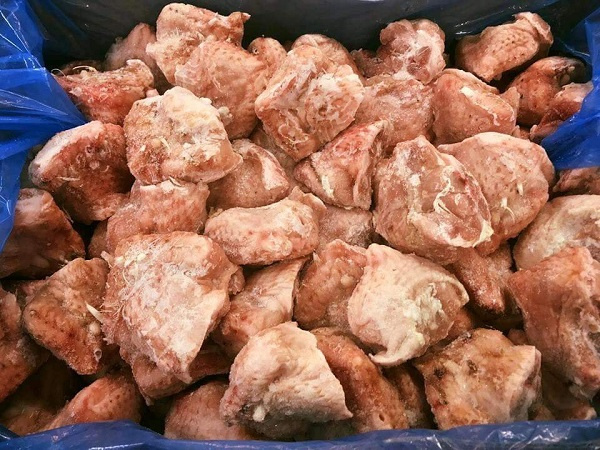
The Food and Drugs Authority (FDA) has observed with serious concern the proliferation of turkey tails popularly known as 'Tsofi' on the local market in flagrant violation of existing regulations.
This comes after the Eastern Regional FDA put a stop to the sale of turkey tail meat in Suhum and Nsawam-Adoagyiri, where the demand for the product was high.
According to the FDA, despite the ban on importation of the product into the country, thousands of cartons are being imported to the detriment of Ghanaians.
During an operation with the Ghana Police Service, some retailers and sellers of the meat were arrested and cartons of turkey tail were confiscated.
Madam Anita Owusu-Kuffour, the Eastern Regional Acting Head of the FDA, said despite the widespread public awareness of the health hazards of selling turkey tails, there was still a thriving market for the meat.
In 1999, the Ministry of Trade and Industry issued a communiqué to all importers to the effect that poultry products with total fat content exceeding 15 percent were prohibited in the country.
Consequently, the Ministry of Food and Agriculture also stopped the issuance of permits for the importation of turkey tails into Ghana.
However, turkey tails are still found in the Ghanaian market. It is therefore clear that these products are smuggled into the country through unapproved routes or misleading declarations of product contents at the approved points of entry.
It is worth noting that the fat from turkey tails is likely to have a good proportion of saturated fats which are associated with high cholesterol levels and as such cause many diseases including heart disease.
Excess cholesterol in the body is known to accumulate in the walls of the blood vessels. Over time, this can cause the arteries to become narrow, eventually blocking the flow of blood to the heart and brain, leading to either a heart attack or a stroke.
Scientific research also indicates that diets that are high in saturated fats can increase the risk of lung, colon, breast, uterine and prostate cancers.
Read Full Story





















Facebook
Twitter
Pinterest
Instagram
Google+
YouTube
LinkedIn
RSS